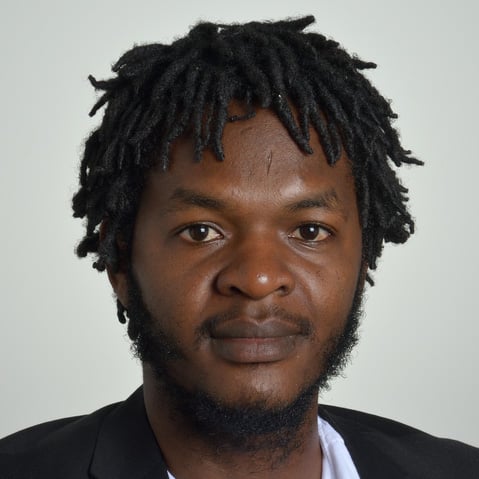What if Artificial Intelligence wasn’t just for experts, but for everyone? World Summit AI 2025 speaker Uchenna Victor Moses, Digital Project Manager and author of the AI Global Manual, shares his mission: to make Artificial Intelligence literacy a civic right, not a luxury. From training government workers in Nigeria to imagining AI as a tool for public accountability, Moses is building a future where no one is left behind—not by ignorance, not by design.
What’s your most compelling dream scenario for AI — a breakthrough that would fundamentally improve life on a global scale?
My dream only works if people everywhere understand and can use AI in their own lives. That’s why I focus on AI literacy, it’s not about turning everyone into coders, but about making sure every citizen has the knowledge to access opportunities, make informed choices, and hold systems accountable. Without literacy, the promise of AI becomes inequality.
What’s a recent project or breakthrough you're especially proud of — and what kind of impact do you hope it will have in the real world?
One project I am especially proud of is the AI Global Manual, which I authored as a beginner’s guide to help everyday people understand and use AI. It was officially adopted by the Cross River State Government in Nigeria for a statewide campaign, reaching students, professionals, and civil servants. What makes me proud is not just the policy recognition, but the idea that ordinary citizens are being given the tools to participate in the digital economy. The impact I hope for is simple: more people seeing AI not as something distant or technical, but as a resource they can use in their own lives.
What’s a use case for AI that you think more people should know about — something positive that’s flying under the radar?
One use case I think more people should know about is how AI can be used as a tool for civic empowerment. For example, we’re seeing early efforts where AI chatbots help citizens understand laws, policies, or even their rights in plain language. It may not sound glamorous, but it has huge impact: it lowers barriers to participation, gives people a voice in decisions, and turns AI into civic infrastructure. That’s the kind of use case that connects directly to social mobility and inclusion.
If you had to choose one nightmare scenario that keeps you up at night — whether realistic or speculative — what would it be, and what warning signs should we be watching for today?
The nightmare that worries me most is not killer robots or machines taking over, but something more subtle: a world where only a small group of people understand and shape AI while everyone else is left out. That creates a new form of inequality where decisions are made without civic responsibility or public input. The warning signs are already here: when students graduate without digital skills, when governments roll out technology without preparing their workforce, or when AI is treated only as a product and not as public infrastructure. If we ignore those signs, we risk building world-class systems and world-class inequality at the same time.
Who or what do you think has the power to prevent your nightmare scenario above?
Preventing that nightmare is not the job of one group alone. It takes universities that embed AI literacy into education, governments that treat it as civic infrastructure, industry that invests in reskilling, launching people and products, and citizens who see themselves not just as consumers of technology but as participants in shaping it. When these parts work together, we can close the gap before it becomes permanent inequality.
What are we not talking about enough in the AI conversation today — something you believe could be hugely important five years from now?
“We are not talking enough about civic literacy in AI. Most conversations focus on models, regulation, or jobs, but far less on whether ordinary citizens have the knowledge to understand and question the systems shaping their lives. Five years from now, the difference between societies that thrive with AI and those that fall behind will come down to whether their people were empowered as citizens, not just as consumers.”
If you look ahead 10 years, what do you think will be the biggest change in our daily lives?
In ten years the biggest change will be that AI shapes almost every part of daily life from how we learn to how we access healthcare and public services. The real difference will not be the technology but whether people have the literacy to use it with confidence and hold it accountable. If AI becomes as ordinary as electricity civic literacy will be what ensures it empowers rather than excludes.
What inspired you to participate in this AI summit as a speaker, and what message do you hope to convey to the audience?
What inspired me to join this summit is the chance to share a perspective that often gets overlooked: AI is not only about technology but about people. My message to the audience is simple. If we want AI to be a force for social mobility we must treat AI literacy as civic infrastructure so that every student, professional and citizen can participate and benefit, not just a privileged few.
Uchenna Victor Moses, Digital Project Manager

World Summit AI global Summit series
World Summit AI Qatar
09 – 10 December 2025
Doha Exhibition & Convention Center

.png?width=259&name=WSAI%20Amsterdam%20Orange%20no%20dates%202000x300%20(1).png)
.png?width=263&name=IM_Mothership_assets_LOGO_MINT%20(2).png)

